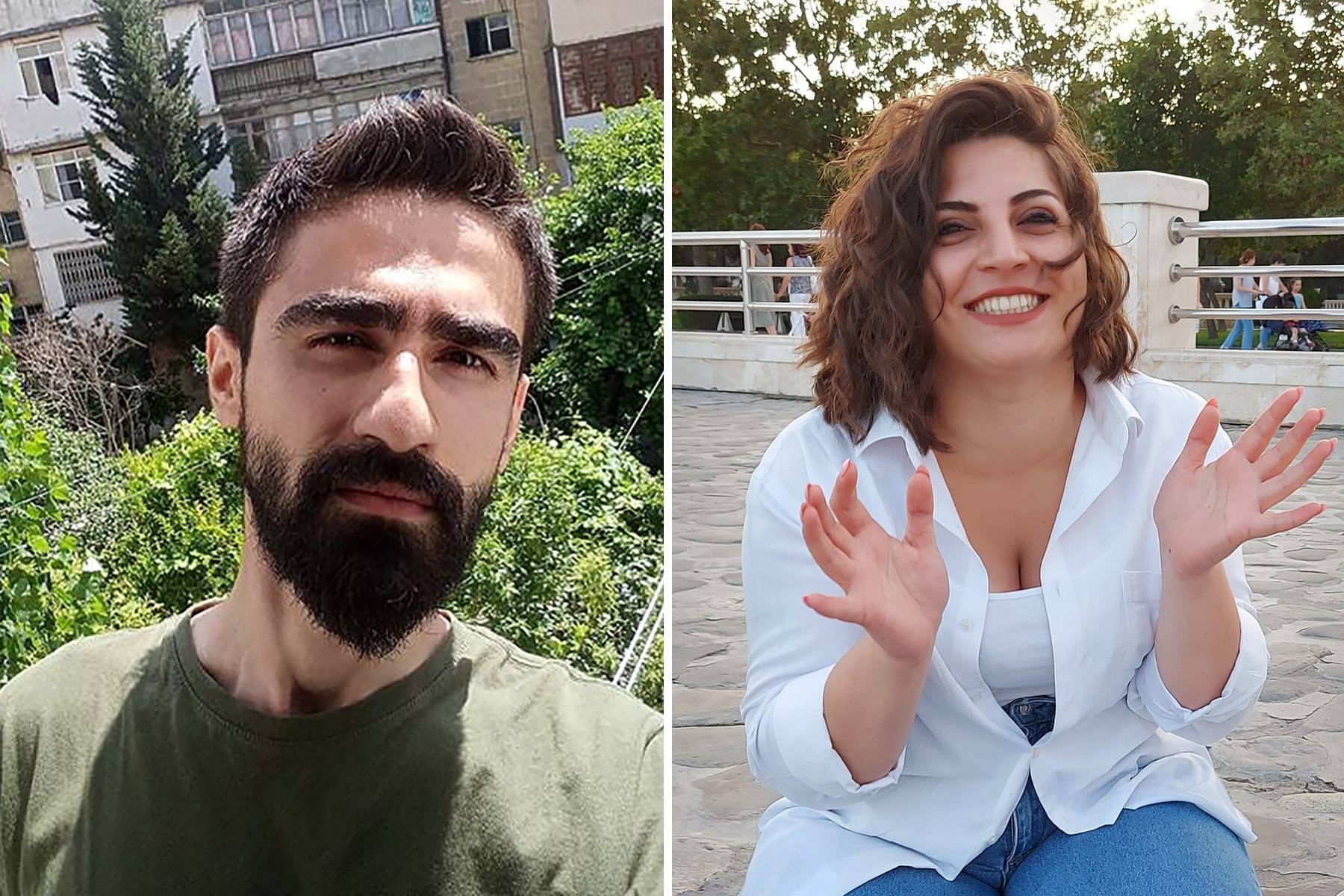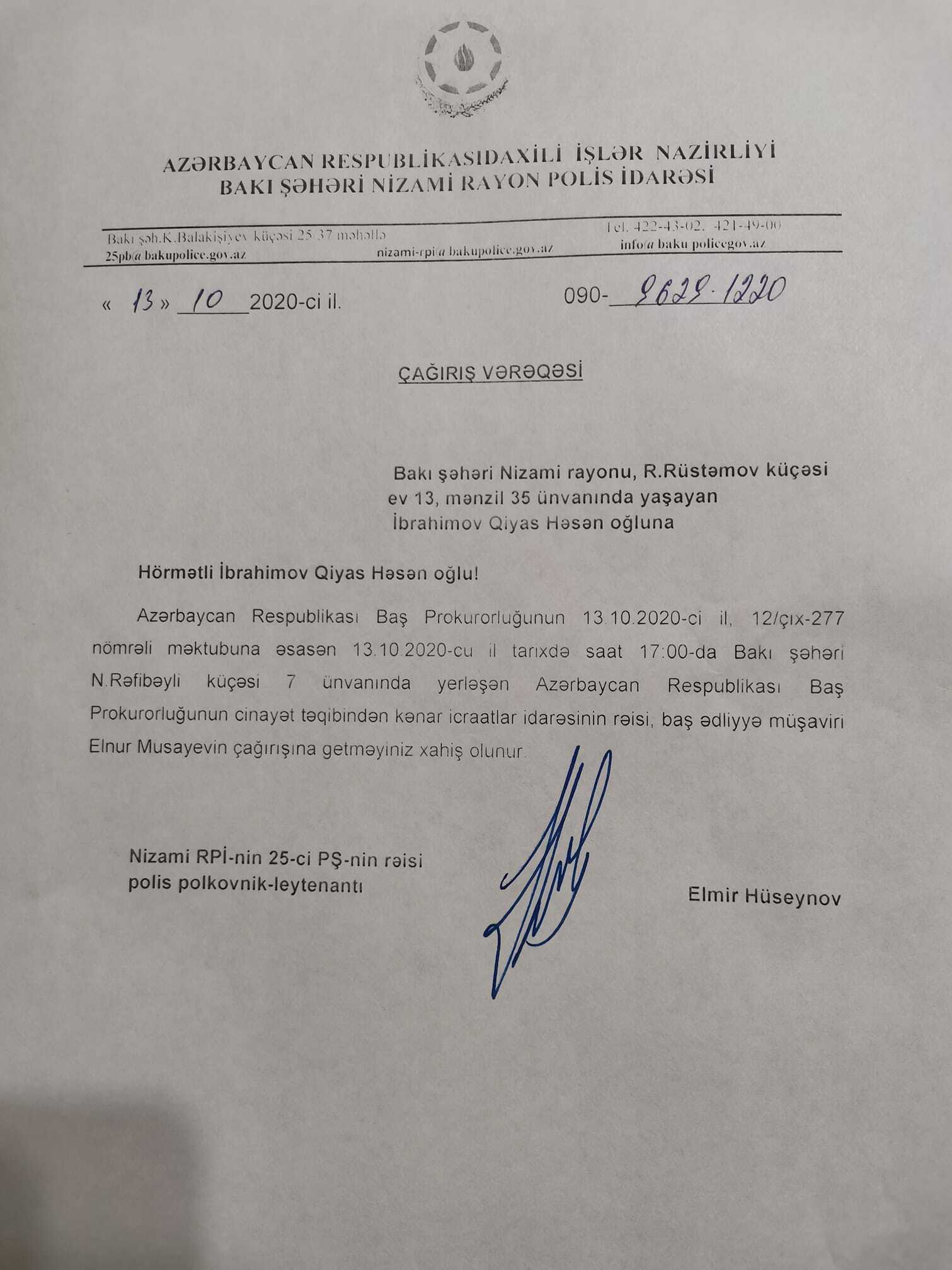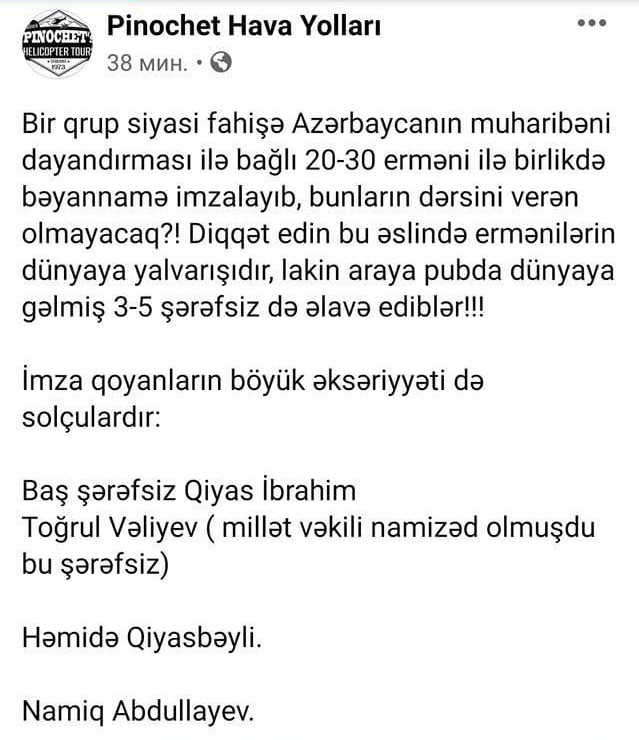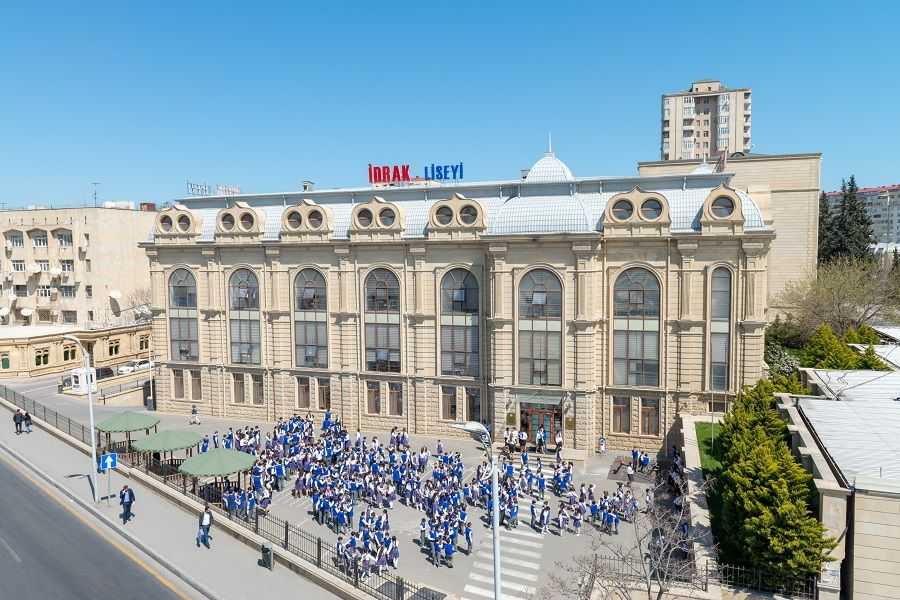
Azerbaijani peace activists Narmin Shahmarzade and Giyas Ibrahimov have reported that they have been called to the Prosecutor’s Office for questioning.
Narmin Shahmarzade wrote on Facebook on Tuesday afternoon that Giyas Ibrahimov was ‘taken away by a car’ and that she was notified by phone to present herself at a police station.
Four hours later, Ibrahimov posted a picture of a document summoning him to the Prosecutor’s Office.

‘They called me again. I wonder whom we offended now. They don’t understand that I will not become a political immigrant! If I’d wanted it, I would have done it in 2019. If you want to arrest me, I say, do what you like’, he wrote.
Journalist Ulviyya Ali reported that Ibrahimov had since been freed from the Chief Prosecutor’s Office.
In an earlier post, Ibrahimov vowed not to be driven out of the country. He said that if he ever left Azerbaijan, ‘it will not be a departure as a political immigrant, saying “I am being persecuted for my anti-war views” or for any other reason’.
The two were among hundreds of signatories of a statement calling for peace from Armenia, Azerbaijan, and around the world.
Ibrahimov was previously detained briefly in the initial days of the war for ‘criticising an anchor on public TV’.
[Read more on OC Media: Anti-war activist detained by Azerbaijani security service]
He told OC Media on 7 October that he had also been receiving threats ‘since the second day of the escalation’.
‘I received them when nobody received them, and in an intensive form. But I didn’t treat them seriously. I saw several posts in connection with the peace statement [I signed], where they insulted me […] But again, I don’t treat them seriously’, he said.
Threats and online harassment
Several other young Azerbaijani activists who signed the peace statement have reported receiving pressure and threats online.
Several posts have suggested — without evidence — that the peace statement was linked to Anna Hakobyan, the wife of Armenian prime minister Nikol Pashinyan.
On 9 October, Caucasus Talks, the site that posted the statement, denied the allegations, calling them ‘disinformation’. They insisted that they were ‘an unequivocally independent platform with no links to any politician, political party, or organisation anywhere in the world’.
In one post online, a man listed the Azerbaijani signatories of the statement, calling them ‘dishonourable’ and ‘traitors of the Motherland’, adding that someone should examine who their family members were.
In another post by the group ‘Pinochet Hava Yollari’ (Pinochet Airlines), whose name references the practice by the Pinochet dictatorship of executing opposition activists by throwing them out of helicopters, the author questions whether ‘anybody would punish them’.

The post claims that the statement was ‘actually a plea by Armenians to the world’, which was joined ‘by 3-5 dishonourable people born in pubs’.
The post accuses the Azerbaijanis who signed the statement of being ‘leftists’ led by a number of prominent activists including Giyas Ibrahimov.
One of the activists, Jale Bayramova, told OC Media that she was accused online of receiving grants from foreign organisations for such activities.
In a post dedicated to her, a man urged ‘patriotic people, Karabakh veterans, refugees and IDPs, activists, public and political figures’ to leave money at her door ‘without insults or knocking’.
In another post, she, along with being accused of ‘thinking about getting grants from European organisations’, was also accused of not using the opportunities she had to report on the ‘oppression of her people’.
Toghrul Valiyev, an economist and former candidate for the parliamentary elections who also signed the peace statement, told OC Media that he did not consider the threats online a danger to the lives of the activists.
‘I don’t believe in it. Once something like that happened before, but it resulted in nothing’, he said.
Valiyev said there was an issue of making people ‘afraid to think differently’.
He added that because of the pressure online, one Azerbaijani activist had already asked that their signature be removed from the statement.








